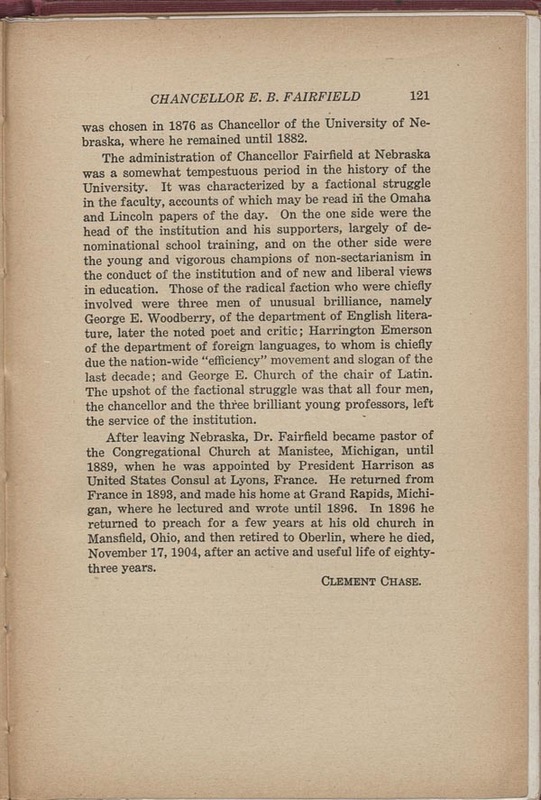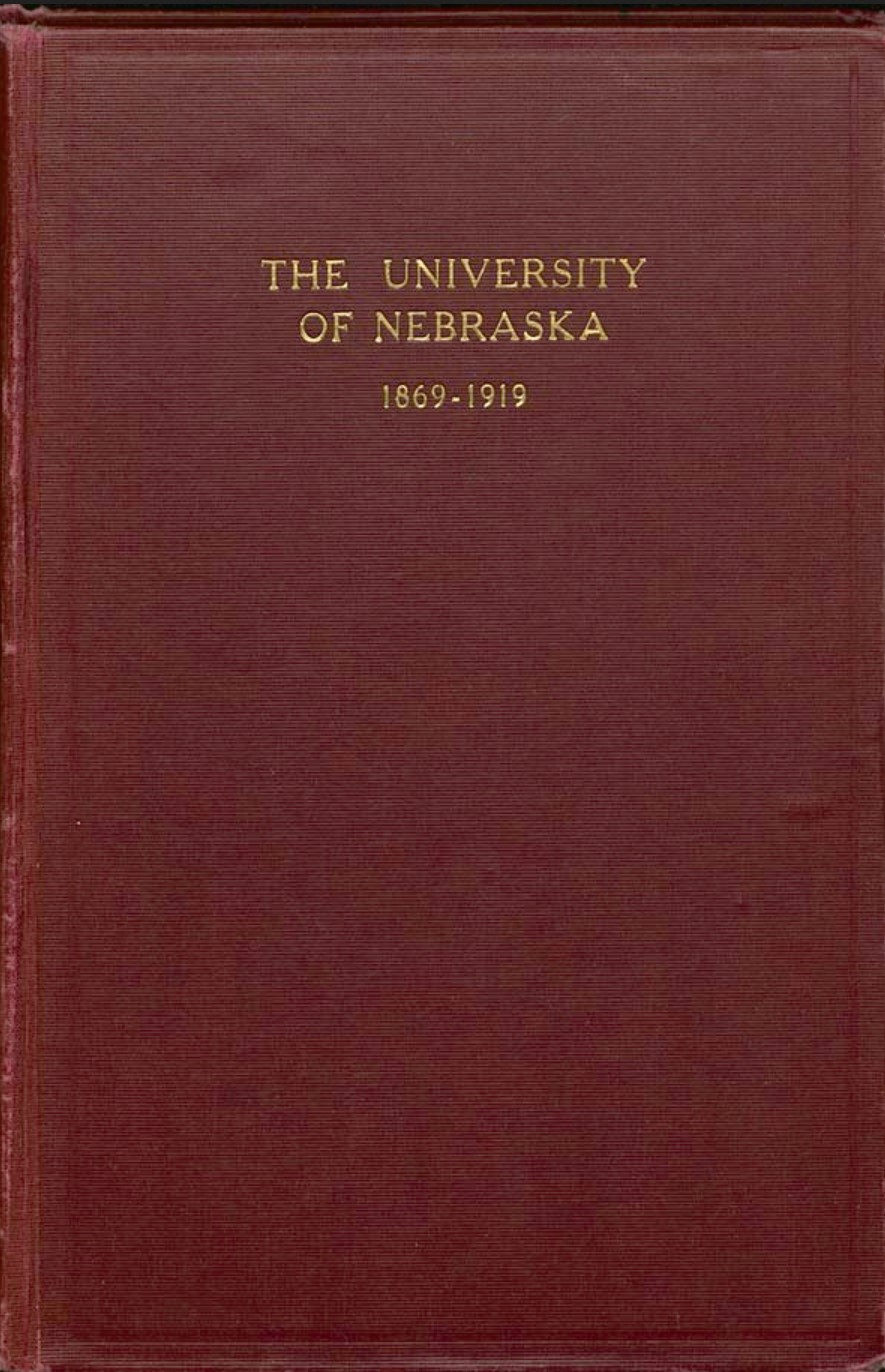125
Item
-
Title
-
125
-
Description
-
Semi-Centennial Anniversary Book: The University of Nebraska, 1869-1919
-
Transcription
-
was chosen in 1876 as Chancellor of the University of Nebraska, where he remained until 1882.
The administration of Chancellor Fairfield at Nebraska was a somewhat tempestuous period in the history of the University. It was characterized by a factional struggle in the faculty, accounts of which may be read in the Omaha and Lincoln papers of the day. On the one side were the head of the institution and his supporters, largely of denominational school training, and on the other side were the young and vigorous champions of non-sectarianism in the conduct of the institution and of new and liberal views in education. Those of the radical faction who were chiefly involved were three men of unusual brilliance, namely George E. Woodberry, of the department of English literature, later the noted poet and critic; Harrington Emerson of the department of foreign languages, to whom is chiefly due the nation-wide "efficiency" movement and slogan of the last decade; and George E. Church of the chair of Latin. The upshot of the factional struggle was that all four men, the chancellor and the three brilliant young professors, left the service of the institution.
After leaving Nebraska, Dr. Fairfield became pastor of the Congregational Church at Manistee, Michigan, until 1889, when he was appointed by President Harrison as United States Consul at Lyons, France. He returned from France in 1893, and made his home at Grand Rapids, Michigan, where he lectured and wrote until 1896. In 1896 he returned to preach for a few years at his old church in Mansfield, Ohio, and then retired to Oberlin, where he died, November 17, 1904, after an active and useful life of eighty-three years.
CLEMENT CHASE.
-
Rights
-
To inquire about usage, please contact Archives & Special Collections, University of Nebraska-Lincoln Libraries. These images are for educational use only. Not all images are available for publication.



